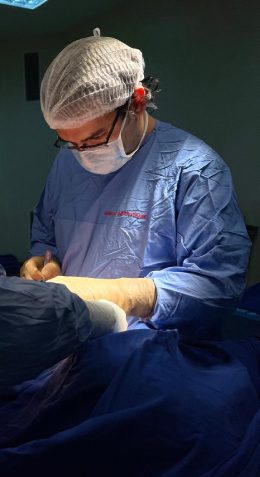Genioplasty - Chin Implant
Genioplasty - Chin Implant
What is Genioplasty (Chin Implant) ?
Genioplasty surgery is a cosmetic surgical procedure in which the jaw is enlarged by placing a suitable material into the jawbone to address aesthetic concerns. This operation is performed on patients with normal dental structure and jaw development. In this procedure, a titanium screw (implant) is placed into the jawbone, onto which a dental prosthesis is attached with porcelain or ceramic coating. Chin implants are preferred to improve both the aesthetic appearance and restore chewing function.
Why is Genioplasty Preferred?
Genioplasty is an ideal solution for individuals experiencing tooth loss due to various reasons such as accidents, diseases, or aging. Missing teeth not only cause aesthetic discomfort but also affect chewing function. Jaw implant can address these deficiencies, provide an aesthetic smile, and restore chewing ability.
How is Chin Implant Done?
The chin implant procedure typically occurs in several stages. In the first stage, a surgical operation is performed to place the implant onto the jawbone. The implant, made of titanium, is inserted into the jawbone in the shape of a screw, and it is expected to fuse with the bone over a few months. After this process is completed, a prosthetic tooth is attached to the implant. This prosthetic tooth is designed to be compatible with the patient's natural teeth and provide an aesthetic appearance.
Is Genioplasty Permanent?
Genioplasty is generally a permanent solution. With proper care and regular check-ups, implants can last for many years. However, the durability of the implant depends on the individual's oral hygiene, overall health, and the quality of the bone where the implant is placed.
Recovery Process of Chin Implant
The recovery process after chin implantation can vary from person to person. Mild swelling, pain, or sensitivity in the area where the implant is placed is normal. The healing process usually takes a few weeks, and after the implant has fused with the bone, the prosthetic tooth is attached.
Is Chin Implant Risky?
Although the jaw implant procedure is generally safe, there are some risks involved. The most common risks include infection, implant failure, nerve damage, and damage to the jawbone. To reduce these risks, it's important to collaborate with an experienced dentist and undergo a detailed evaluation before the procedure.
Is There an Age Limit for Genioplasty?
There is no specific age limit for jaw implants, but it's not recommended to place implants before the completion of bone development. Additionally, anyone in good overall health, with sufficient bone density, and who maintains oral hygiene can be a candidate for jaw implant.
Other Options to Enhance Jaw and Jawline
While many patients prefer jaw implant surgery alone, some may opt to combine jaw augmentation surgeries with other procedures for better results.
Rhinoplasty + Genioplasty
Chin implants can significantly enhance the results of rhinoplasty. Therefore, combining nose reshaping surgery with jaw augmentation is one of the most common facial contouring procedure combinations.
Neck Liposuction + Genioplasty
Patients with excessive fullness under the chin often prefer to undergo neck liposuction along with jaw implant surgery. Jaw strengthening enhances the definition of the jawline, while removing excess fat can further improve the appearance of the lower face and neck.
In conclusion, jaw implantation is an effective treatment that improves aesthetic appearance and restores chewing function. When performed correctly, it can enhance patients' quality of life and provide long-term solutions. However, like any surgical procedure, jaw implantation carries certain risks and requires careful evaluation and follow-up.


